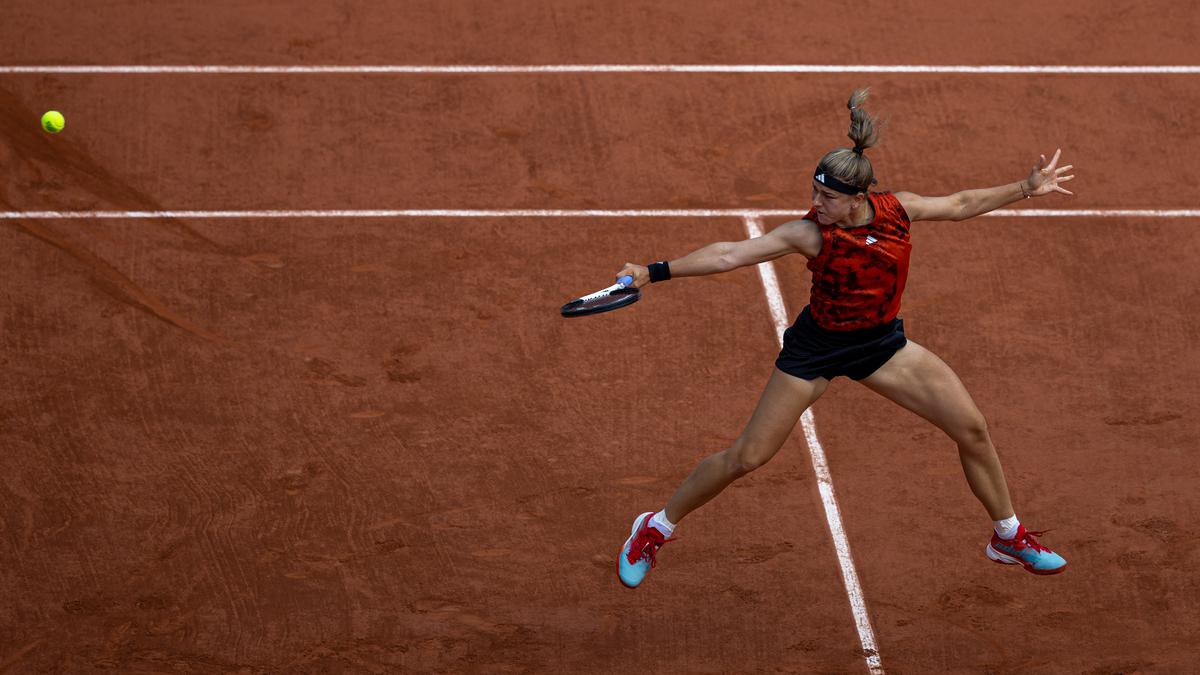
What does the future hold for Karolina Muchova? Premium
The Hindu
The 26-year-old Czech, when injury-free, can bewilder the best tennis players in the world — as she proved during a memorable fortnight on Parisian clay. She can now look forward to the season’s second half on faster courts, which will suit her dynamic, all-around game even better
Around this time last year, Karolina Muchova was in a wheelchair. An ankle injury had ended her French Open. It was another setback for the injury-plagued Muchova, who had been sidelined for seven months in 2021-22 with an abdominal problem. Once a top-20 player, her ranking declined — she found herself at No. 235 last August, with doctors asking her to reconsider playing professional tennis because they feared her body couldn’t withstand the rigours.
It was one of her lowest points, especially because she had already had to deal with a series of injuries as a teenager competing in the juniors, which had hindered her development as a player. “There have been many lows, I would say, from one injury to another,” said Muchova. “For sure when I missed the Australian Open last year, and I was in a pretty bad state health-wise, some doctors told me maybe you’ll not do sport anymore. But I always kept it kind of positive in my mind and tried to work and do all the exercises to be able to come back.”
This comeback, which featured quarterfinal runs in Auckland, Dubai, Indian Wells and a return to the world’s top 50, peaked at Roland-Garros. Over a fortnight on the Parisian red clay, Muchova captured the imagination with a brand of vibrant, creative tennis that is rarely seen on the Tour.
The 26-year-old Czech compiled an impressive list of victims, which included World No. 8 Maria Sakkari, 2021 Roland-Garros runner-up Anastasia Pavlyuchenkova, and Australian Open champion and World No. 2 Aryna Sabalenka. Muchova then came close to winning her first Grand Slam with a spirited fightback against World No. 1 Iga Swiatek but lost 6-2, 5-7, 6-4.
“It was very close, but very far,” said Muchova. “I’m a little sad but I gave my everything on the court so I have nothing to regret. The feeling is a little bitter, but to call myself a Grand Slam finalist is amazing. Because I know what I have been through in the past, [it] makes me appreciate this even more now.”
Muchova’s heartwarming underdog story captivated tennis fans, but the significance of her performance — what it means for her future and how that can impact the women’s game — is just as fascinating. Clearly, her playing style matches up well against the world’s best; it disconcerts them and her fighting spirit means they can’t afford to relax at any stage.
The big moments don’t faze her. In fact, she often played her most adventurous tennis under pressure. And she did this on clay, not the surface that best suits her game. So it isn’t unreasonable to infer that she will be a contender on faster courts, if she can stay injury-free.













